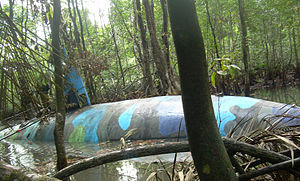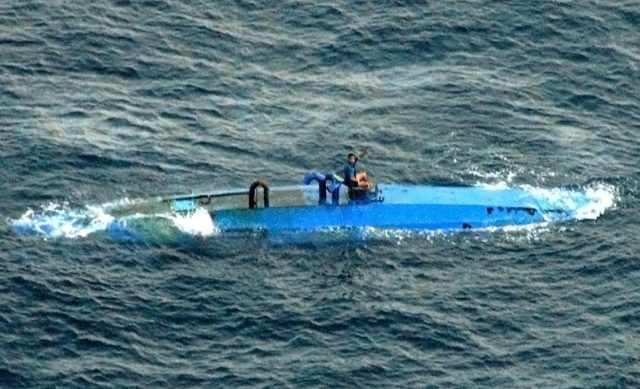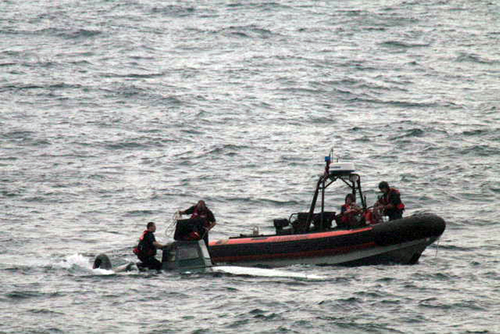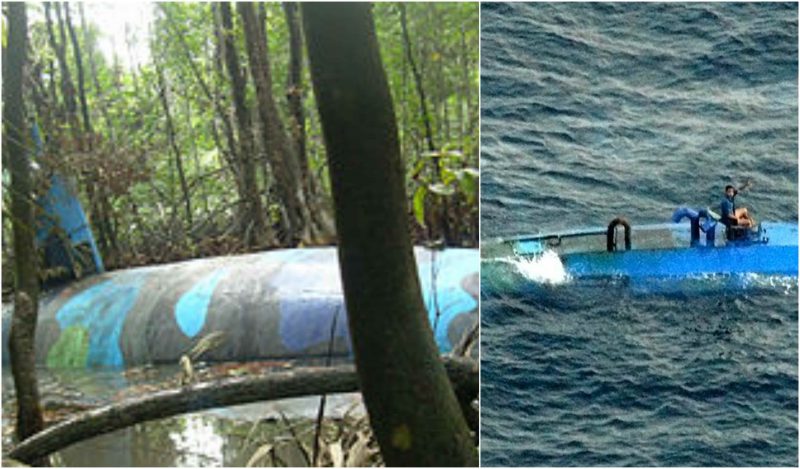Drug dealers are certainly very creative when it comes to smuggling narcotics. They have thought of various ways for the drugs to get from one continent to another by land, air, and sea. One of those ways was building a type of custom-made ocean-going self-propelled submersible vessel. The submarines were generally used to transport the drugs from Colombia to Mexico, from where it would be smuggled into the United States.

Before the submersible vessels, Colombian drug traffickers used fast boats in the 1980s and early 1990s but these boats could be easily detected by radar. So by 1993, drug traffickers came up with the idea of building semi-submersibles. The older models couldn’t dive, but the more recent ones are fully submersible and created exclusively to be untrackable visually or by radar, sonar, and infrared systems.
Even though there were all kinds of rumors about the existence of these vessels for a long time the authorities took a long time to find one. It was only in 2006 when the U.S. Coast Guard captured one and named it “Bigfoot.” It was detected 145 km southwest of Costa Rica, carrying several metric tons of cocaine. Ever since more and more narco-submarines have been seized by the U.S. authorities.

In only three years, from 2006 to 2009, U.S. officials spotted at least 60 submarines; it is estimated that they moved 330 tons of cocaine per year. Every submarine costs $2 million to construct, yet in a single trip a submarine can carry a haul of cocaine worth $100 million.
When a key Mexican-Colombian connection – Harold Mauricio Poveda – was captured and arrested in 2010, there was a suspicion that the Revolutionary Armed Forces of Colombia (FARC) was building the narco-submarines in collaboration with the Sinaloa Cartel.

The Colombian navy also contributed to the capture of submarines carrying cocaine on the shores of the Pacific. In July 2015, a cargo of 7.7 tons was seized on a semi-submersible that was detected by an aircraft and interdicted by USCGC Stratton. It was the largest such cargo ever seized.
